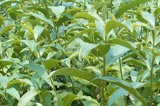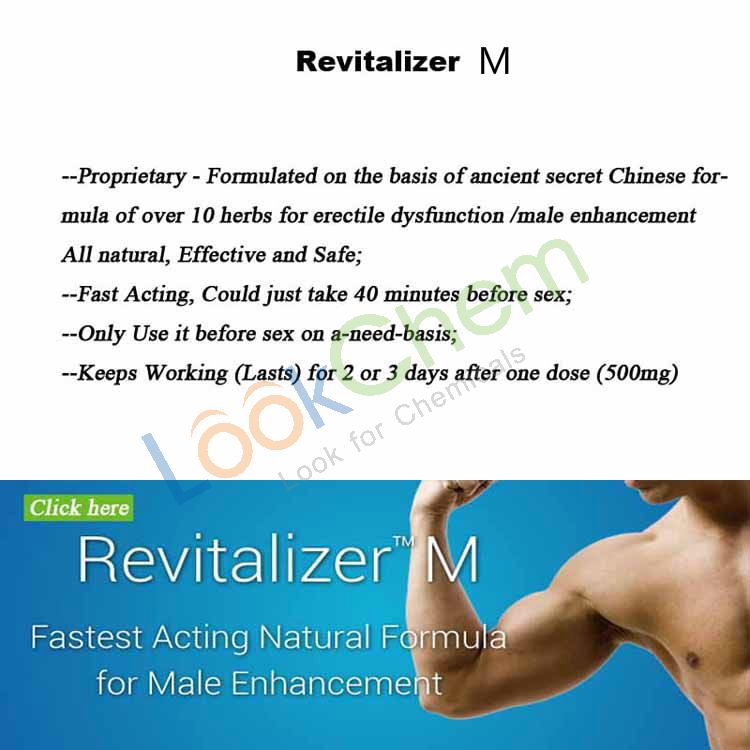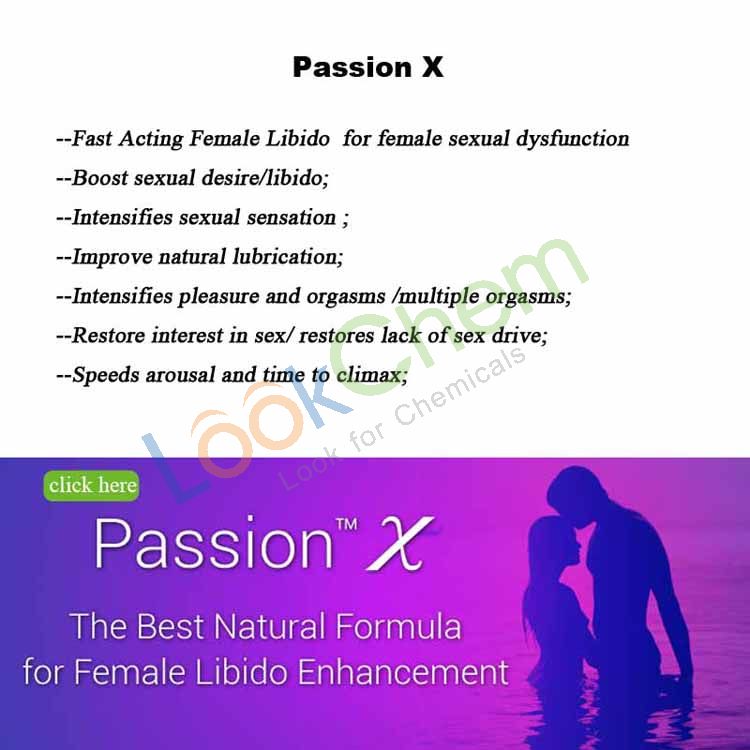- Min.Order :25 Kilogram
- Purity: 100% natural
- Payment Terms : L/C,T/T,Other
Keywords
Herbal extract Catechins Green tea extract
Quick Details
- Appearance:Fine brown powder
- Application:Health supplement, beverage,cosmetic. Anti-atherogenic / Reduces cholesterol & triglycerides,Anti-oxidant/Free radicals scavenging,Reduces blood clotting,Enhances immune function
- PackAge:25kg/drum
- ProductionCapacity:100|Metric Ton|Month
- Storage:Stored in a cool and dry place, and kept away from moisture and direct sun light.
- Transportation:By Air
Superiority:
Features and Benefits of DeCaf-EAFree Catechins ( Green Tea Extracts )
· Organic:
- Tea leaves selected from the Organic Certified GAP (Good Agriculture Practices) farms
- Extracted and decaffeinated only with pure water, unlike the traditional process with the solvents – Ethyl Acetate
· Low content of solvent residuals: Less than 10ppm
· Low content of organic residuals: Less than 1ppm
· Low content of pesticide residuals: Less than 1ppm
· High concentration of EGCg: 35% – 65%
· Low content of caffeine: No more than 1%
· Low content of heavy metals: Less than 10ppm
· No unpleasant odour of solvent – Ethyl Acetate
Details:
DeCaf-EAFree Catechins - Botaniex’s decaffeinated green tea extracts brand. It is extracted and decaffeinated without Ethyl Acetate which could be harmful to humans. Botaniex owns the Ethyl Acetate Free Extraction Technology, which will be patented in the near future.
DeCaf-EAFree Catechins available at Botaniex:
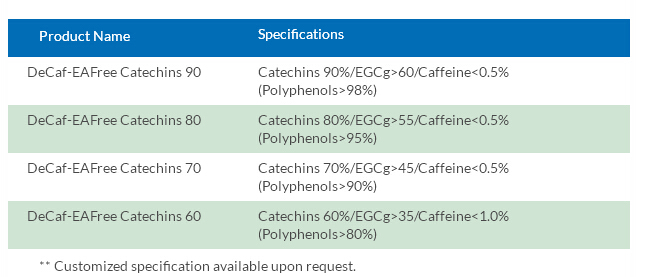
Features and Benefits of DeCaf-EAFree Catechins ( Green Tea Extracts )
· Organic:
- Tea leaves selected from the Organic Certified GAP (Good Agriculture Practices) farms
- Extracted and decaffeinated only with pure water, unlike the traditional process with the solvents – Ethyl Acetate
· Low content of solvent residuals: Less than 10ppm
· Low content of organic residuals: Less than 1ppm
· Low content of pesticide residuals: Less than 1ppm
· High concentration of EGCg: 35% – 65%
· Low content of caffeine: No more than 1%
· Low content of heavy metals: Less than 10ppm
· No unpleasant odour of solvent – Ethyl Acetate
Green Tea Extracts Catechins / EGCg
The tea plant is a large shrub with evergreen leaves, used medicinally for more than 5000 years in China where it originated. Tea is now the second-most consumed beverage in the world. Based on the different processes in tea making, it is categorized as Green Tea, Black Tea, Oolong Tea, White Tea, Yellow Tea and Dark Tea. A number of beneficial health effects are attributed to regular consumption of green tea and dried/powdered extracts of green tea are available as dietary supplements.
Green tea extracts is prepared by picking, lightly steaming and allowing the leaves to dry. The active constituents in green tea are a family of polyphenols (catechins) and flavonols, which possess potent antioxidant activity. Tannins, large polyphenol molecules, form the bulk of the active compounds in green tea, comprised nearly 90%of catechins. Several catechins are present in significant quantities; epicatechin (EC), epigallocatechin (EGC), epicatechin gallate (ECG) and epigallocatechin gallate (EGCg). EGCg makes up about 10-50% of the total catechin content and appears to be the most powerful of the catechins – with antioxidant activity about 25-100 times more potent than vitamins C and E. A cup of green tea may provide 10-40mg of polyphenols and has antioxidant activity greater than a serving of broccoli, spinach, carrots or strawberries. A number of commercial green tea extracts are standardized to total polyphenol content and/or EGCg content.
|
Latin Name |
Camellia sinensis L. |
|
|
Common Name |
Tea |
|
|
Plant Family |
Theaceae |
|
|
Part of Plant Used |
Leaf |
Molecular Structure of Active Substance
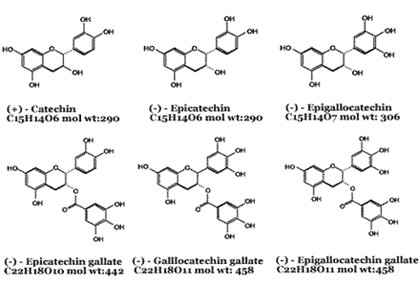
Benefits
· Anti-atherogenic / Reduces cholesterol & triglycerides
· Anti-oxidant/Free radicals scavenging
· Reduces blood clotting
· Enhances immune function
· Enhances weight management
· Anti-cancer/Anti-Radiation
· Reduces platelet aggregation
· Protects against digestive and respiratory infections
· Blocks the attachment of the bacteria to the teeth associated with dental cavities
MechanismBecause the active compounds, the catechins, found in green tea are known to possess potent antioxidant activity, they may provide beneficial health effects by protecting the body from the damaging effects of oxidative damage from free radicals. A number of chronic disease states have been associated with free radical induced oxidative damage, including cancer, heart disease, and suppressed immune function and accelerated aging.
SafetyAdverse or toxic effects of isolated tea catechins or polyphenols have not been reported in humans. Gastrointestinal disturbances and central nervous system (CNS) stimulation associated with high doses of green tea extract have been attributed to their caffeine content.Green tea extracts consumption of as much as 20 cups per day has not been associated with any significant side effects. In high doses, teas that contain caffeine may lead to restlessness, insomnia and tachycardia. Decaffeinated versions of green tea and green tea extracts are available – but due to differences in caffeine extraction methods, the amounts of phenolic/catechin compounds can vary between extracts.
It is recommended that consumers select an extract that is decaffeinated as well as standardized for total polyphenol content and/or catechin concentrations.
Packing
25kg/drum (25kg net weight, 28kg gross weight; Packed in a cardboard-drum with two plastic-bags inside; Drum Size: 510mm high, 350mm diameter)
Customized package is available upon request
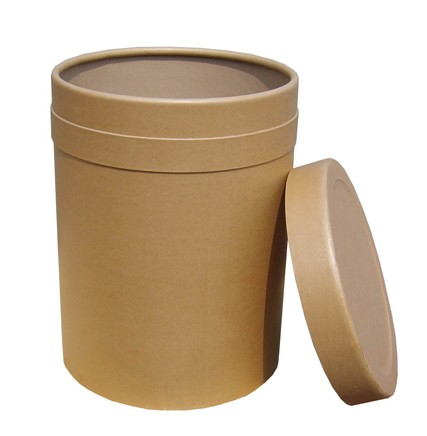
Extraction equipment
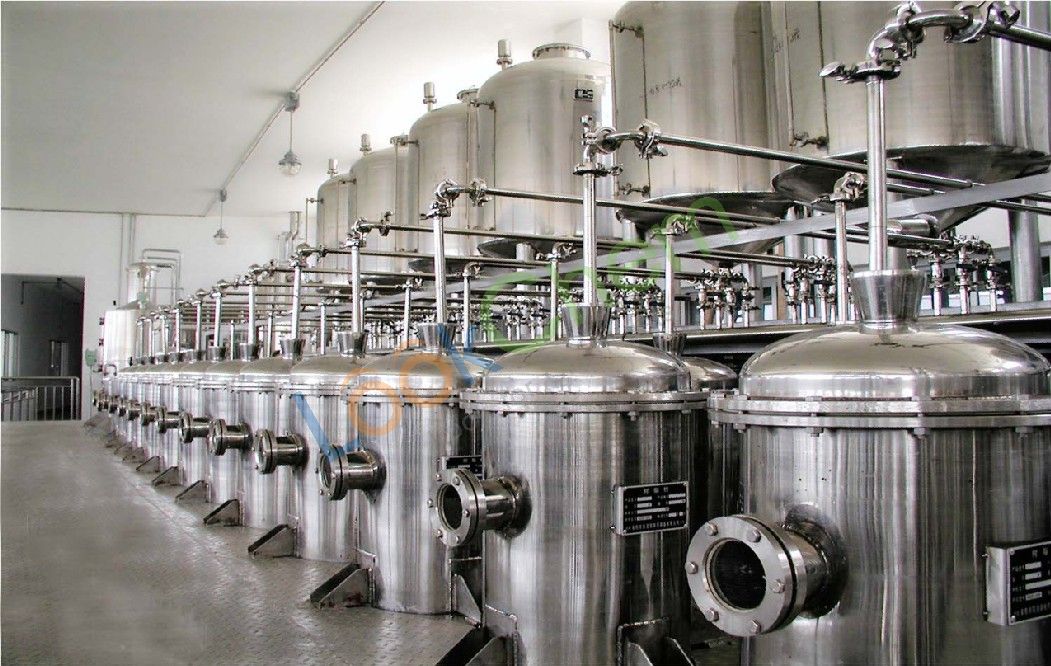
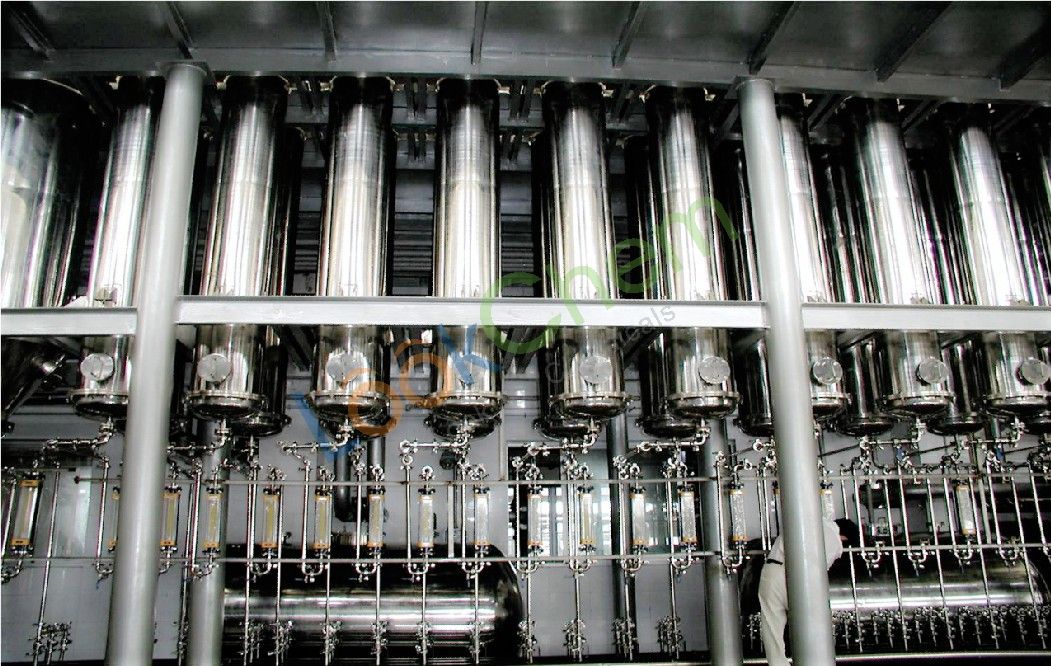
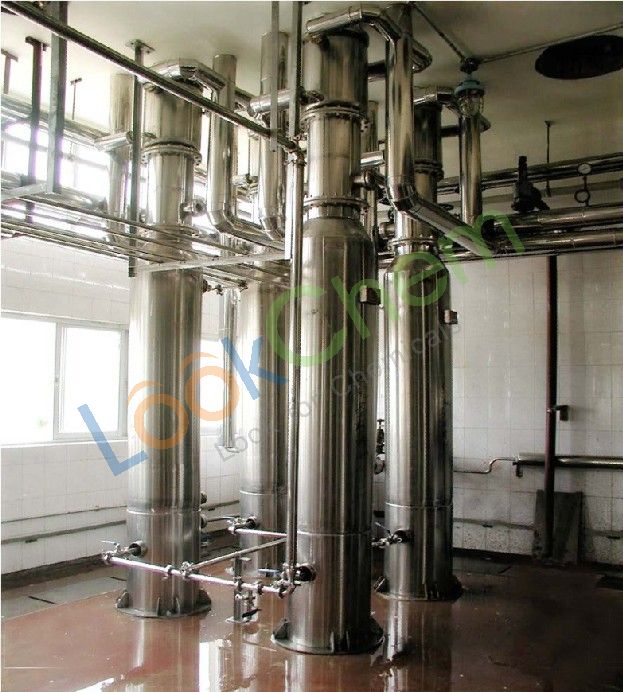
Our other best sellers:
You Might Also Like
-
45%EGCG green tea extract with free samples
CAS NO:989-51-5
-
Hot Selling Product 100% Natural Best Selling 8%~40% Isoflavones Red Clover Extract
CAS NO:574-12-9
-
Hot Selling Product 100% Natural Chlorogenic Acids 20%-60% | Green Coffee Bean Extract powder
CAS NO:519-02-8
-
Hot Selling Product 100% Natural Plant Extract Rhodiola Rosea Extract Rosavin 1%,3%
CAS NO:84954-92-7
-
Hot Selling Product 100% Natural Plant Extract Maca Powder Extract 4:1, 10:1,20:1
CAS NO:519-02-8
-
Hot Selling Products Pure Natural Horny Goat Weed Extract 10%~50% Icariin powder
CAS NO:489-32-7
Related Searches
About|Contact|Cas|Product Name|Molecular|Country|Encyclopedia
Message|New Cas|MSDS|Service|Advertisement|CAS DataBase|Article Data|Manufacturers | Chemical Catalog
©2008 LookChem.com,License: ICP
NO.:Zhejiang16009103
complaints:service@lookchem.com Desktop View
